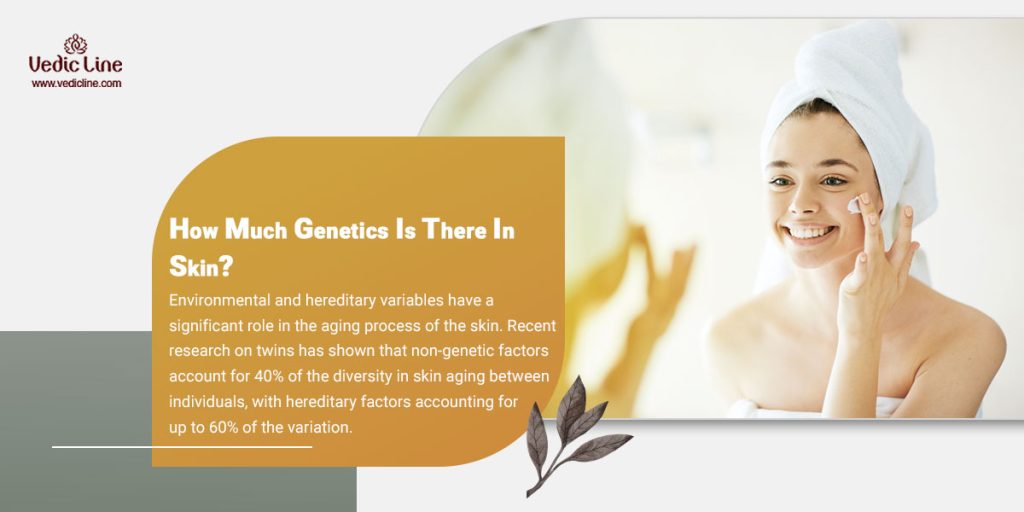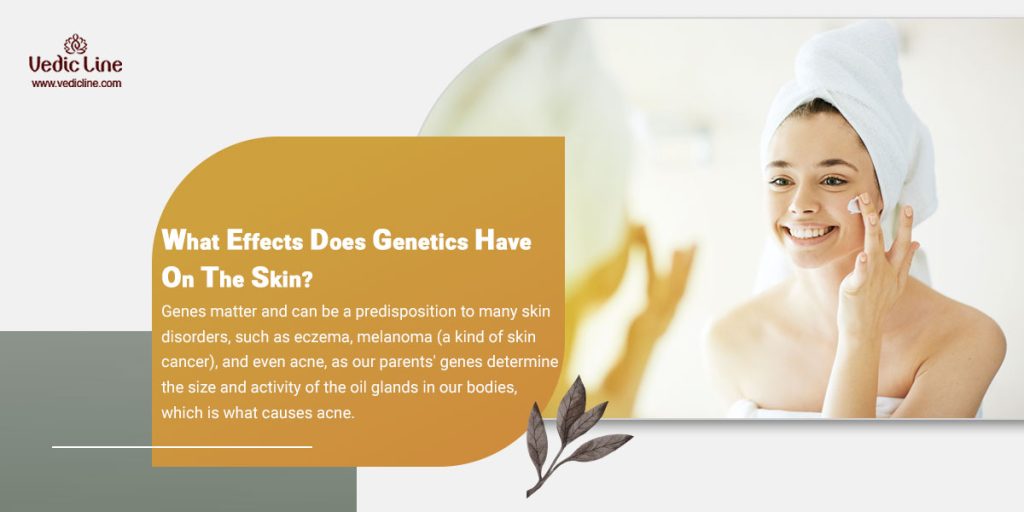In the realm of skincare, our quest for flawless, radiant skin often leads us down numerous paths, from trying various products to adopting different routines. While external factors such as environmental pollutants, diet, and lifestyle choices undoubtedly play a significant role in skin health, the influence of genetics is often overlooked. Our DNA holds crucial clues about our skin’s unique characteristics, and understanding genetics in skincare can revolutionize our approach to achieving optimal skin health.
At its core, genetics determine the fundamental structure and function of our skin. Additionally, from complexion to texture and even susceptibility to certain skin conditions, our genes shape the canvas upon which our skincare efforts unfold. Therefore, here’s a deeper dive into how DNA influences various aspects of skin care:
Skin Type and Sensitivity: Genetics heavily influences our skin type, whether it’s oily, dry, combination, or normal. Certain genes dictate the production of oils, moisture retention capabilities, and the overall balance of our skin’s lipid barrier. Additionally, genetic in skincare factors play a role in determining skin sensitivity and reactivity to external irritants and allergens.
Aging Process: The aging process is intrinsically linked to genetics, with some individuals displaying signs of aging earlier or more prominently than others. Genes regulate collagen and elastin production, which are crucial proteins responsible for skin elasticity and firmness. Variations in genes associated with antioxidant pathways also impact our skin’s ability to combat oxidative stress, a key contributor to premature aging.

Pigmentation and Skin Color: Melanin production, the pigment responsible for skin color, is influenced by genetic factors. Variations in genes associated with melanin synthesis can result in differences in skin tone, susceptibility to hyperpigmentation or melasma, and response to UV radiation. Understanding these genetic nuances can inform personalized approaches to managing pigmentation concerns.
Skin Conditions: Genetic predispositions play a significant role in various skin conditions, including acne, eczema, psoriasis, rosacea, etc. Certain gene variations affect immune responses, skin barrier function, and inflammation pathways, increasing the likelihood of developing these conditions. Identifying these genetic markers can aid in targeted treatment strategies and personalized skincare regimens.
Response to Skincare Products: Individual responses to skincare products are also influenced by genetic factors. Genes involved in skin barrier function, detoxification pathways, and sensitivity thresholds determine how our skin reacts to different ingredients and formulations. Personalized skincare approaches, guided by genetic analysis, can help optimize product selection and efficacy.
Environmental Interactions: While genetics lay the foundation, environmental factors can modulate gene expression and exacerbate certain skin concerns. UV exposure, pollution, dietary habits, and lifestyle factors can interact with genetic predispositions, impacting skin health and aging processes. Understanding these gene-environment interactions is essential for comprehensive skincare management.

Incorporating Genetic Insights into Skincare:
Advancements in genetic testing and personalized medicine have paved the way for tailored skincare approaches based on individual genetic profiles. Skincare professionals can offer personalized recommendations for products, treatments related to skin health and aging. Here’s how individuals can leverage genetics in skincare insights for enhanced skin care:
Genetic Testing: Consider undergoing genetic testing through reputable providers specializing in skincare analysis. These tests can provide valuable insights into genetic predispositions related to skin type.
Customized Skincare Regimens: Armed with genetic insights, tailor your skincare regimen to address your unique needs and concerns. Choose products formulated with ingredients that complement your genetic profile, such as antioxidants, peptides, and hydrating agents suited to your skin type and aging concerns.
Preventive Measures: Use genetic information to adopt proactive measures aimed at preventing premature aging and minimizing the risk of skin conditions. Incorporate sun protection, antioxidant-rich skincare products, and lifestyle modifications tailored to your genetic predispositions.
Collaborate with Skincare Professionals: Work closely with skincare professionals, dermatologists, or genetic counselors who can interpret your genetic data. Collaborative efforts ensure a holistic approach to skincare that integrates genetic insights with clinical expertise.

Wrapping Up
In conclusion, genetics plays a significant role in shaping our skin’s characteristics. Additionally, from its type and sensitivity to its aging trajectory and susceptibility to various conditions. Moreover, by understanding genetics in skincare, individuals can unlock personalized strategies for achieving and maintaining optimal skin health. Furthermore, integrating genetic insights into skincare practices heralds a new era of personalized skincare. Thus, treatments are tailor to individual genetic profiles.



